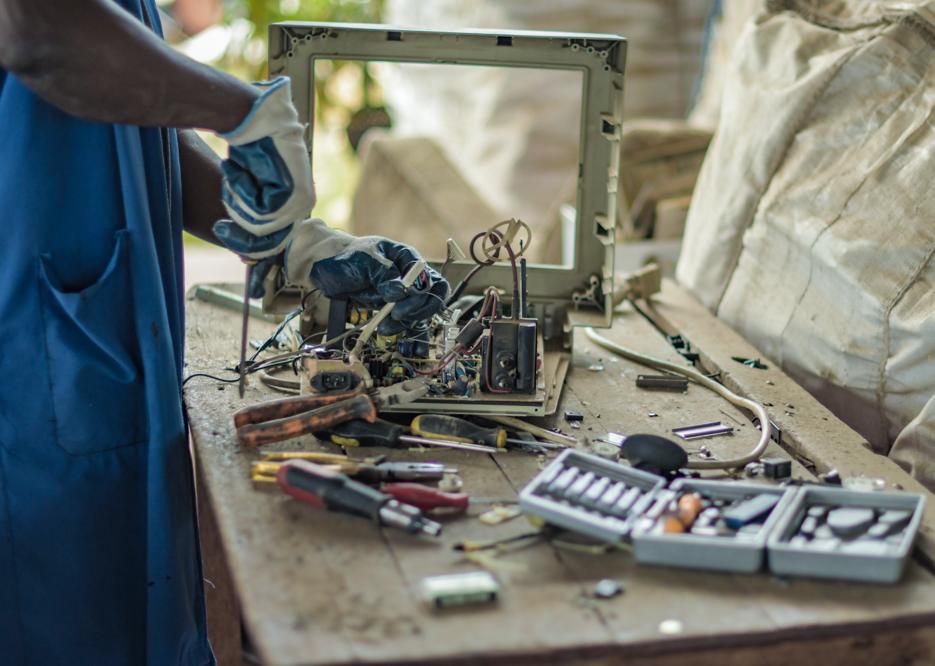A management center for end-of-life electrical and electronic equipment
- Category: E-Waste Management
- Date: 05-11-2020
The accumulation of electrical and electronic waste is an increasingly alarming global issue. The toxicity of these becomes of great concern.
For the third edition, the world celebrated on October 14th, 2020, the International Day of E-Waste. Electronic devices dominate our daily live, phones, computers and other household appliances,…, presented as “essential”, also have their down side. Worldwide, out of 50 million tonnes of electrical and electronic waste generated in 2019, only one fifth was collected and treated according to the rules of the art [Estimates of the WEEE Forum which brings together 36 organizations involved in responsible management of waste electrical and electronic equipment]. A big environmental and health risk.
Since 2014, GLICE has opened a collection and management center for Special Solid Waste including electronic, biomedical and plastic waste, which complies with the environmental standards in force at national, regional and international levels. Having collected over 293.05 tonnes of waste, GLICE's Center ensures that waste is managed in a way that saves natural resources and protects human health and the environment.
For the Center, the big challenge linked to the collection and management of electronic waste is the population which has not yet understood the importance behind a collection by entrusting their Waste Electrical and Electronic Equipment ( WEEE) to whomever they want, simply because there is no legal framework that clarifies the path to take. Remember that the quantity of WEEE recycled at the center does not even represent a tenth of the waste in the country.
Currently, Burundi does not have any unit for treating and disposing of dangerous and non-recyclable fractions of WEEE. This is how GLICE finds itself obliged to export all WEEE abroad for treatment.

